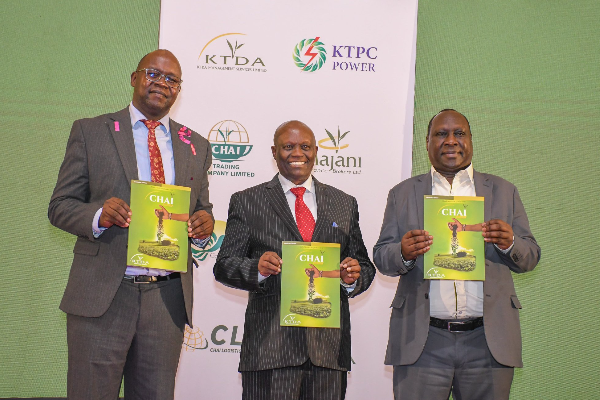Kenya is recalibrating its tea export strategy to focus on value addition and secure its position in Egypt, its largest tea market, amid shifting trade dynamics and foreign exchange challenges.
The plan, unveiled during bilateral talks in Nairobi attended by Agriculture Cabinet Secretary Mutahi Kagwe, Egyptian Ambassador Wael Nasreldin Attiya, and Kenya Tea Development Agency (KTDA) Group CEO Wilson Muthaura, prioritizes packaging and branding tea at source while establishing distribution hubs in Cairo.
Officials said the strategy will help Kenyan farmers fetch higher prices, guarantee more predictable incomes, and expand the country’s reach into the wider Middle East and North Africa (MENA) region.
“Egypt remains our biggest market, and safeguarding it through value addition ensures that Kenyan farmers earn fairer returns while positioning our tea competitively across the region,” said Muthaura.
Safeguarding a Vital Market
Egypt currently imports about 86.9 million kilograms of Kenyan tea annually—worth nearly Ksh24 billion—accounting for 85 percent of its national supply. However, exports to Egypt fell by 10 percent this year, with many growers facing delayed payments due to Cairo’s foreign currency shortages. To counter this, Kenya is pushing for direct government-to-government trade agreements that would stabilize cash flow and shield farmers from currency fluctuations.
The emphasis on packaging and branding at source is also aligned with reforms under the Tea Act 2020, which created the Tea Board of Kenya to promote value addition. Officials said the Cairo distribution centers would not only stabilize supplies to Egypt but also act as gateways for Kenyan tea into emerging MENA markets.
Broader Agricultural Cooperation
The Nairobi talks also widened the scope of collaboration beyond tea. Egyptian officials expressed interest in partnering on grain production and beef farming in Kenya. Currently, the cost of Kenyan beef is nearly double that of imports from Latin America, a challenge both sides aim to address through joint investments in feedlots and meat processing facilities.
“Lowering production costs is key to making Kenyan beef more competitive, and partnerships with Egypt can help us achieve that,” said CS Kagwe.
Egyptian investors were further invited to explore agro-industrial projects, innovations for semi-arid farming, and training programs for youth and students through agricultural education exchanges.

Stronger Bilateral Ties
The renewed trade focus builds on the 12 bilateral agreements signed by the two nations in 2024, spanning agriculture, investment, and capacity building. With a possible state visit by Egypt’s President expected in 2025, stakeholders view the tea export strategy as part of a broader framework to deepen economic ties.
Ambassador Attiya underscored Egypt’s commitment to Kenyan tea, famously stating, “No Egyptian starts their day without Kenyan tea.” He added that expanding cooperation in food security and agro-processing would create mutual benefits for both countries.
Kenya’s tea industry earned Ksh215.21 billion in 2024, with exports accounting for more than 80 percent of revenues. Officials believe the pivot to value addition will not only secure Egypt’s market but also strengthen the global reputation of Kenyan-branded tea while creating jobs in packaging, blending, logistics, and marketing.
For smallholder farmers, who form the backbone of the sector, the shift signals more stable incomes and reduced reliance on volatile bulk exports.








